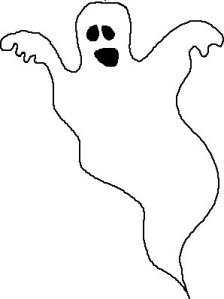Nothing is Supernatural
Russell Blackford has a nice discussion of the problem with the natural/supernatural distinction over on his blog (which I recommend), the Metamagician and the Hellfire Club.
 He talks mainly about the difficulty in fielding a definition of ‘supernatural’ as ‘things beyond the powers of science to explain.’ However, as I stated in the comments to that post, I don’t think one needs to define supernatural as such. Instead it’s far easier – and more consistent – to simply state that ‘no supernatural things exist.’
He talks mainly about the difficulty in fielding a definition of ‘supernatural’ as ‘things beyond the powers of science to explain.’ However, as I stated in the comments to that post, I don’t think one needs to define supernatural as such. Instead it’s far easier – and more consistent – to simply state that ‘no supernatural things exist.’
Here is my comment in its entirety, with some more detail on my argument:
This all reminds me of the opening lines to Quine’s On What There Is.
“A curious thing about the ontological problem is its simplicity. It can be put in three Anglo-Saxon monosyllables: ‘What is there?’ It can be answered, moreover, in a word – “Everything” – and everyone will accept this answer as true.”
Likewise, when asked ‘what is natural,’ it might be tempting to respond with the same answer: ‘Everything.’
Yet, as Quine points out, we can still argue over cases. Are ghosts natural or supernatural? Is a the cause of a miraculous event natural or supernatural? But even the nature of this disagreement is problematic, as Russell has so ably stated.
However, I don’t think one needs to accept a rigid distinction between natural/supernatural ‘things’ because it seems more sensible to say that there are no supernatural things. Anyone who calls something supernatural is simply mistaken.
A ghost, if agreed to exist, becomes a part of the natural world. Should some characteristics of the ghost contradict accepted knowledge of the natural world, it would serve as evidence that our knowledge of the natural world is incomplete.
Compare this to the alternate: the ghost is agreed to exist, it’s characteristics contradict accepted knowledge of the natural world, but our conception of the natural world doesn’t change and the ghost is added to a new category of things: supernatural.
I suspect the vast majority of scientists – or naturalists – would not be comfortable with this. They’d either show the ghost doesn’t exist, or if they agree it does, they’d integrate it into their naturalistic world view.
Supernatural, as a vernacular term, can still be used for those things that naturalists don’t believe exist, but less informed individuals do, such as spirits, angels, demons etc.
1 Comment
Tom Rees · 15th May 2009 at 8:11 am
That’s a good point, and solves a lot of similar problems with mind-body dualism. If there exists a ‘substance’ that interacts with the brain to create the mind, then it is ‘natural’ by definition. Anything that affects the material world in a detectable way is natural. So dualism is shown to be not a supernatural explanation, but simply a recourse to obfuscation.
But then again, ghosts still exist, it’;s just that they exist only as concepts. However, some concepts are natural (like the concept of ‘Tuesday’), and some are supernatural… Hmm, it’s getting late here!